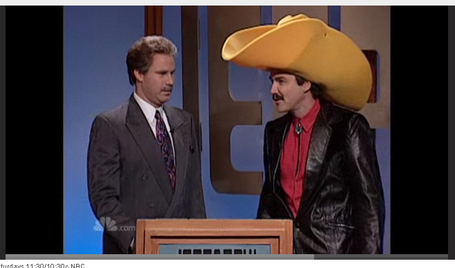A number of months ago, I was in New Jersey in the company of friends who were discussing a future event slated to take place in Saratoga, NY. The members of the group had never been there, and were wondering what it was like and what there was to do there.
 I grew up about 40 minutes south of Saratoga. I would play against its soccer team throughout my childhood, as the town is close enough to be part of the Suburban Council sports league to which my Niskayuna High School belonged. It’s famous for its horse-racing track, at which I’ve placed a bet of $3.95, but my friends, family and I would make random trips up there long before I was old enough to gamble; the summer-time Jazz Festival in particular led to any number of shenanigans.
I grew up about 40 minutes south of Saratoga. I would play against its soccer team throughout my childhood, as the town is close enough to be part of the Suburban Council sports league to which my Niskayuna High School belonged. It’s famous for its horse-racing track, at which I’ve placed a bet of $3.95, but my friends, family and I would make random trips up there long before I was old enough to gamble; the summer-time Jazz Festival in particular led to any number of shenanigans.
Given my familiarity with the area, at least relative to my New Jersey companions, I was eager to contribute my knowledge about the discussed locale. I tried to chime in a number of times with a detail or two, but as is often the case with this chatty group, it was difficult to get a word in. Eventually, I felt completely absurd and decided to stay out of the conversation.
The reason I backed down was not because I changed my mind in thinking that I could provide at least some appreciated insight. Instead, I chose to keep my mouth shut because I recognized I wasn’t contributing to be helpful; rather, I wanted to speak up out of a narcissistic desire for people to know that I knew something. Despite the potential side effect of my information being helpful, this true motivation embarrassed me, so I stayed out of it.
This whole anecdote isn’t exactly the most gripping tale, but it got me thinking about why I wanted to share my Saratoga knowledge. Again, it wasn’t out of actually wanting to help, but instead because I wanted them to know that I knew these things. I think that’s sort of weird. Yea, humanity is narcissistic, but why is it I desire people to know that I know? How does that benefit me?
My initial answer is our society values knowledge, because we subconsciously do the math: “if you know things, you’re intelligent.” We respect intelligence, and we desire respect, so it makes sense that we want to be seen as knowledgeable.
 Watching Jeopardy in a group is an easy example. Recently, I was watching an episode with my girlfriend and my mom, and the $2,000 Double Jeopardy “answer” from the Middle Ages category was, “This saintly Italian, the leading theologian of the Middle Ages, did all of his theologizing in the 1200s.” My mom and girlfriend didn’t know, and ditto for all three contestants, but, due to my Philosophy Major (it finally paid off!), I was confident in asking, “who is Thomas Aquinas?” Trebek confirmed, I fist-pumped, and my two gal pals were very impressed.
Watching Jeopardy in a group is an easy example. Recently, I was watching an episode with my girlfriend and my mom, and the $2,000 Double Jeopardy “answer” from the Middle Ages category was, “This saintly Italian, the leading theologian of the Middle Ages, did all of his theologizing in the 1200s.” My mom and girlfriend didn’t know, and ditto for all three contestants, but, due to my Philosophy Major (it finally paid off!), I was confident in asking, “who is Thomas Aquinas?” Trebek confirmed, I fist-pumped, and my two gal pals were very impressed.
Pulling trivial…. trivia (“I was in trouble like three words into that”) like this makes me feel good, so it would seem the initial theory is right. However, the pride I take in knowing obscure philosophy isn’t caused by every random factoid. In fact, the theory – that we desire to have people aware we know things – breaks down because there are just so many things I know that I am embarrassed to admit I know.
The most hilarious proof of this comes from Seinfeld. I’m referring to the “Lie Detector Test” specifically, when Jerry’s girlfriend wonders whether he watches the sitcom Melrose Place and Jerry, too insecure to admit his obsession, denies it until the very end:
If it were only a desire to been seen as knowledgeable, then Jerry would want to prove the depths of that knowledge, and would have no problem sharing his thoughts on Jane sleeping with Michael again. But that is not the case. Not all knowledge is created equal.
What’s the difference, though? Why am I pumped up about my familiarity with Thomas Aquinas, whereas Jerry is ashamed to know about Kimberly stealing a baby?
One, is that I value knowledge of philosophy, whereas Jerry didn’t want to be thought of as a man who gets emotionally invested in soap opera drama. There’s a difference in the perceived value of knowing one thing versus another, yet I can’t imagine there’s anything intrinsic about those specific things that causes that distinction.
 For instance, a kill-the-time-while-I’m-bored-and-without-resources game I’ve played throughout my entire life is “The Alphabet Game,” where you pick a category (e.g. NBA players, DC Metro Stops, Pokemon, Birds, Candy, etc.) and try to name at least one for each letter of the alphabet (e.g. Articuno, Blastoise, Cubone, Dewgong, Eevee, Farfetch’d, Growlithe, Haunter… Ice Beam? Shit). My friends Bullets, Sagar and I were on the DC Metro working through “The Wire characters” when some normal middle-aged dude overheard us naming McNulty, Stringer & Co. and started joining in – something that’s hilarious both on its own, and because he started completely ignoring his wife in the process. During this encounter, I happily answered his question of “who was that politics chick Carcetti slept with?” with the answer of “Theresa D’Agostino” (not technically accurate, I know). The guy, impressed, said “Wow! What a pull!”
For instance, a kill-the-time-while-I’m-bored-and-without-resources game I’ve played throughout my entire life is “The Alphabet Game,” where you pick a category (e.g. NBA players, DC Metro Stops, Pokemon, Birds, Candy, etc.) and try to name at least one for each letter of the alphabet (e.g. Articuno, Blastoise, Cubone, Dewgong, Eevee, Farfetch’d, Growlithe, Haunter… Ice Beam? Shit). My friends Bullets, Sagar and I were on the DC Metro working through “The Wire characters” when some normal middle-aged dude overheard us naming McNulty, Stringer & Co. and started joining in – something that’s hilarious both on its own, and because he started completely ignoring his wife in the process. During this encounter, I happily answered his question of “who was that politics chick Carcetti slept with?” with the answer of “Theresa D’Agostino” (not technically accurate, I know). The guy, impressed, said “Wow! What a pull!”
 I like this story because I can show off my deep familiarity with the greatest show of all time. My girlfriend, though, rolls her eyes when this gets brought up; while she loves Bodie and Randy, my obsession with The Wire has sometimes gotten a bit over-the-top. She doesn’t feel it is nearly as admirable as I do to know so much about the series.
I like this story because I can show off my deep familiarity with the greatest show of all time. My girlfriend, though, rolls her eyes when this gets brought up; while she loves Bodie and Randy, my obsession with The Wire has sometimes gotten a bit over-the-top. She doesn’t feel it is nearly as admirable as I do to know so much about the series.
I find this difference so interesting because it calls attention to the absurdity that I get off on somebody – even a random dude on the Metro – being impressed with how much I know about a show that I really have nothing to do with. Regardless of how many fitting analogies I make to it, I still don’t deserve any credit for how profound David Simon’s masterpiece is.
What this all comes down to is identity. Identity is a construction built entirely on perception – both the perceptions of others and ourselves – and we all strive to have the optimal identity. Being knowledgable is something that we value, and so typically we want to be perceived that way, it’s true. But even further, the things we are knowledgable of become a component of our identity. When we make it known that we know something, we become associated with that thing, and that’s why we want to be perceived as knowing the things we admire because we then view ourselves, by extension, as more admirable.
I love The Wire, and when I learn that someone else loves it too, I’m drawn to that person. I like that person more for it. It only makes sense that I want people to feel the same way about me, so I find myself motivated to broadcast my familiarity with the show. It also, in some weird way, makes me like myself more. That’s why I feel good about myself grasping apropos Arrested Development references that, again, I really have nothing to do with. But by having and exhibiting knowledge of those programs, they’re suddenly a part of who I am and am perceived to be, both by others and by myself.
Isn’t that weird? And fascinating?
I’m not really sure how to conclude this. There’s no real moral of the story, no behavior I’m really suggesting to change. I guess I just find it interesting that by sharing with the world the things we know, we influence who we are.
Maybe that’s why I’m sharing these thoughts in this Blogcat in the first place.
Whoa. That’s so freaking meta.

Right hefe is the riight web site for anybody whho wants to
find out about this topic. Youu know so much its almost hard to argu withh you (not hat I actually would want to…HaHa).
Yoou certainly put a brand new spin on a topic that’s beeen discussed foor decades.
Excellent stuff, just great!